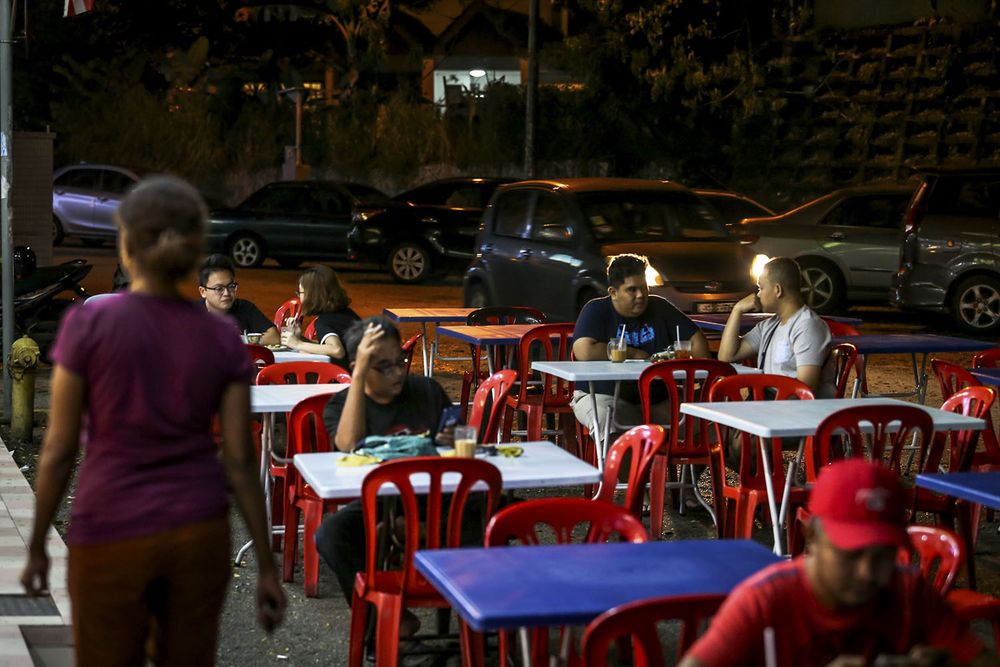KUALA LUMPUR, Nov 23 — Public attention is now on the safety of eateries placing tables and chairs outdoors after the driver of a pickup truck rammed into a restaurant’s patrons seated outside, killing one customer and injuring four others in Taman Equine, Serdang on November 18.
Just earlier this week, the Subang Jaya Municipal Council (MPSJ) revealed that the said restaurant had breached regulations, with deputy president Mohd Zulkurnain Che Ali saying that although they had permission to place chairs and tables outdoors, they did it outside the previously-approved designated area.
One critical prerequisite, he had said, is for barricades to buffer patrons from passing traffic and for the outlets to obtain additional insurance.
But what are the actual conditions or guidelines?
Under MPSJ, restaurants or businesses will need to first fill up a form for a special permit called the “Borang permit sementara meletak kerusi-meja di luar premis” (translation: temporary permit form to place chairs and tables outside the premises). In it, they would have to state whether the placement of chairs and tables would be at an open area/field or by the roadside.
Eateries can apply for a temporary permit for three time slots: 6pm-12am, 6pm-6am, or 6am to 6pm. 24-hour premises will need to obtain a “Grade A” listing from MPSJ and the state health department before they can place chairs and tables outside.
Besides that, owners of eateries will have to obtain written permission from premises situated next to them, and the cleanliness of the area in question will have to be maintained. Chairs and tables can only be placed not more than 50 metres from the premises while for shops in apartment lots, they can only be placed directly in front of the premises.
Owners of eateries will need to inform the local council before they can proceed with any structural additions to the premises, and this means that they will also need to send a detailed map plan, which should include the measurements for the roadside expansion together with their application form.
They will also need take public liability insurance to ensure customers are not at risk while being seated at the roadside section outside the eatery.
Owners as well as employees of eateries will then have to undergo a mandatory food handling course by the MPSJ and Ministry of Health, as well as obtain immunisation shots for typhoid fever as part of the application process.
Each permit is only valid for a year, and has to be renewed before it expires. Local councils can carry out surprise checks and act on complaints lodged by the public.
“Due to the hot weather, there is a huge demand from public to have their meals under the open air. Coffee shops are allowed to apply for temporary permit to place tables and chairs outside the premises if they can fulfill the conditions.
“Every PBT has different but almost similar guidelines on this,” Selangor Local Government, Public Transport and New Village Development Committee chairman Ng Sze Han told Malay Mail when contacted.
The state executive councillor said that the above guidelines will be revised, following the latest incident in Taman Equine.
“As for the road closure proposal, no one is allowed to occupy the public road. I was informed by MPSJ that there are more than 200 compounds issued to the said premise,” he said, referring to the restaurant where the hit-and-run case took place.
So what happens to eateries who don’t abide by the guidelines? “[The premises are] impounded,” Ng said.
Petaling Jaya City Councillor Derek Fernandes said that one of the issues faced by local councils is manpower and enforcement, as there are eateries that operate with chairs and tables outside their premises without a permit.
“There have been a few places where action has been taken, but this is based on complaints rather than proactive measures,” he told Malay Mail when contacted.
The MBPJ councillor said that new guidelines should be drawn up to determine the conditions for a suitable area in which establishments can put chairs and tables outside, and for enforcement to be beefed up.



















